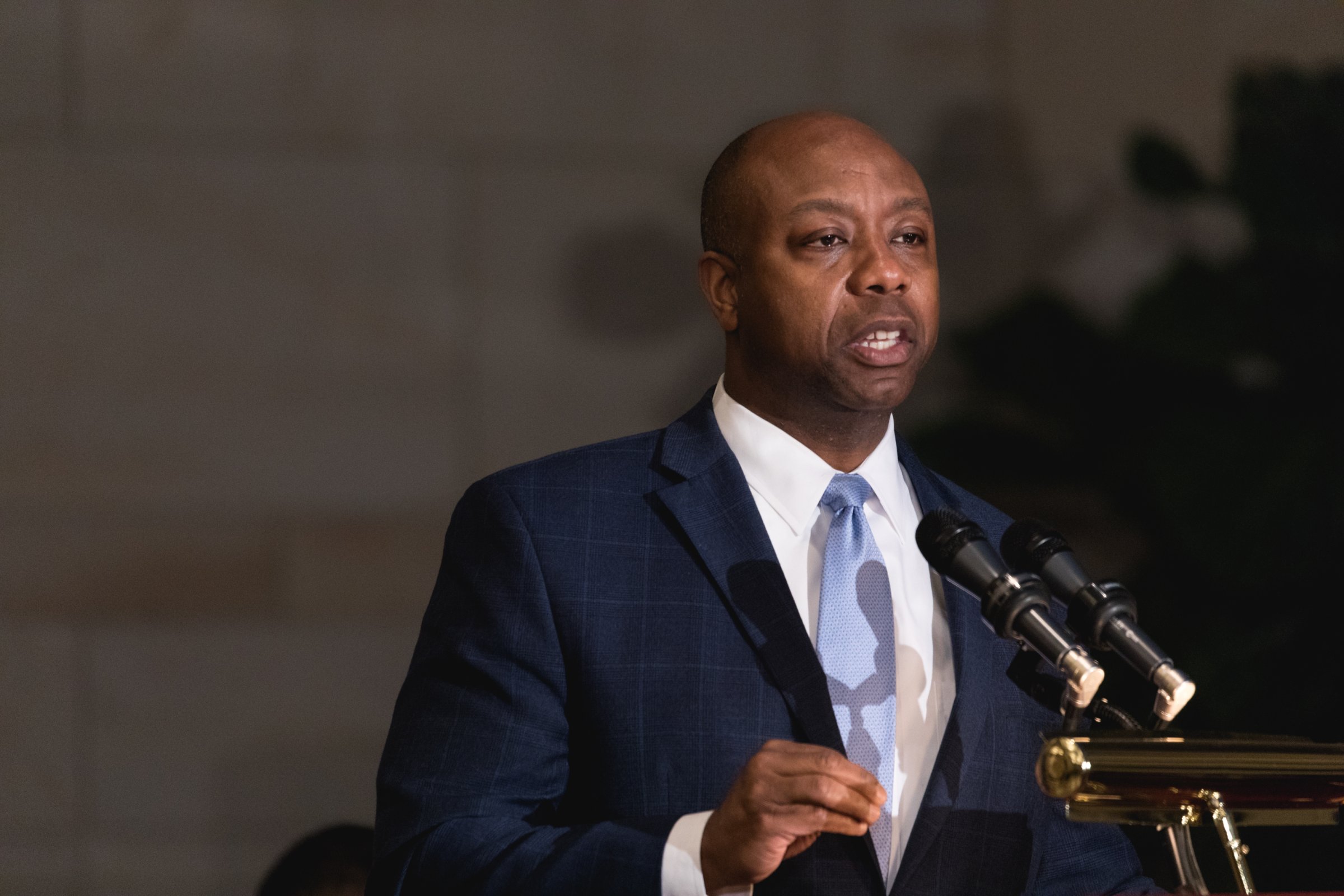
(Bloomberg) — President Donald Trump’s nomination of Thomas Farr for a federal judgeship is likely doomed after a Republican senator said he’ll vote against the North Carolina lawyer whose past work included defending state election laws that courts said discriminated against black voters.
Senator Tim Scott of South Carolina said in a statement Thursday that a Justice Department memo made public this week “shed new light on Mr. Farr’s activities.” As a result, he said, “I concluded that I could not support Mr. Farr’s nomination.”
Scott joins GOP Senator Jeff Flake of Arizona, who has said he’ll oppose all judicial confirmations until the Senate votes on a bill protecting special counsel Robert Mueller’s probe of Russian election interference. In addition, all 49 Senate Democrats oppose Farr’s confirmation.
The Senate advanced Farr’s nomination Wednesday on a 51-50 procedural vote with Vice President Mike Pence breaking a tie. Scott, the only black Republican senator, had voted to move the nomination forward but said at the time he hadn’t decided how to vote on final confirmation.
In July, Scott’s opposition to Trump appellate court pick Ryan Bounds over his college writings on diversity and rape forced withdrawal of the nomination.
The district court seat has been open since 2005. It remained unfilled throughout Barack Obama’s presidency because Republicans never held hearings on the two black women he nominated to fill the vacancy.
Since Trump came to power, the GOP-led Senate has confirmed two Supreme Court justices, 29 appellate court judges and 53 district court judges.
‘Voter Suppression’
Senate Minority Leader Chuck Schumer said in a Senate floor speech earlier Thursday, “There is simply a preponderance of evidence that Mr. Farr was involved – often intimately – in decades of voter suppression in North Carolina.” Schumer said that “has to be disqualifying for a seat on the federal bench.”
As a lawyer, Farr represented the late Senator Jesse Helms’s 1992 campaign against Justice Department complaints of voter intimidation after it sent postcards to more than 125,000 voters in mostly black precincts warning of strict residency requirements and of imprisonment as a penalty for voter fraud. Farr said he had no role in creating the postcards.
Decades later, the North Carolina Legislature’s GOP leaders hired Farr to help defend 2011 election boundaries that were ultimately struck down by federal courts as unlawful racial gerrymanders.
Farr also helped defend a 2013 state law that cut the number of early voting days, required photo identification to vote, and eliminated same-day registration and out-of-precinct voting. A federal appeals court ruled that the state didn’t offer sufficient evidence of in-person voter fraud and said the law targeted black voters “with almost surgical precision.”
Farr told senators at his confirmation hearing that he didn’t believe the laws deliberately discriminated against blacks, but said that as a judge he would follow the appellate court decision.
Farr was nominated to the district court in 2006 by President George W. Bush, but didn’t receive a vote in the Senate Judiciary Committee. This time, the committee advanced his nomination on a party-line vote.
–With assistance from Steven T. Dennis.
More Must-Reads from TIME
- Inside Elon Musk’s War on Washington
- Meet the 2025 Women of the Year
- The Harsh Truth About Disability Inclusion
- Why Do More Young Adults Have Cancer?
- Colman Domingo Leads With Radical Love
- How to Get Better at Doing Things Alone
- Cecily Strong on Goober the Clown
- Column: The Rise of America’s Broligarchy
Contact us at letters@time.com